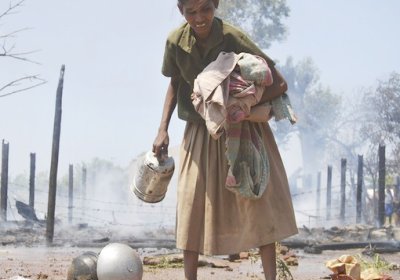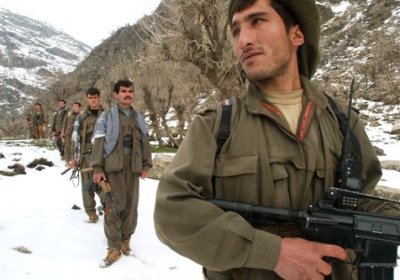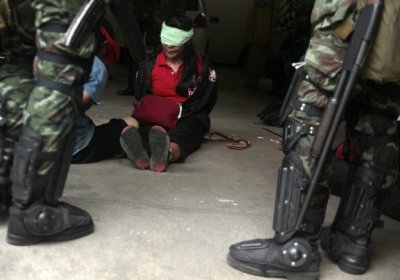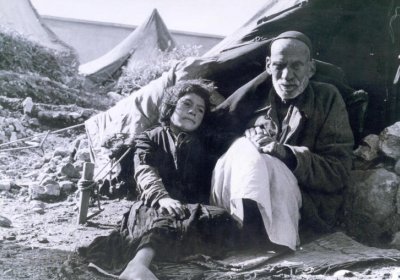The cover of the August 9 edition edition of Time magazine featured a shocking picture of Bibi Aisha, a young woman whose nose and ears had been cut off. The photo was accompanied by the headline: “What happens if we leave Afghanistan”. However, what happened to Aisha took place in Afghanistan under Western occupation.
In return for allowing Time to publish her photo, Aisha was flown to the US for reconstructive surgery. However, although Time ensured her mutilated face was seen worldwide, they appear less keen for her voice to be heard.
Tony Iltis
On August 4, California’s ban on same-sex marriages was ruled unconstitutional by federal judge Vaughn Walker. However, religious fundamentalist and anti-queer groups have indicated that they will appeal the ruling.
On August 6, Walker granted a stay on the implementation of his ruling, meaning lesbian and gay couples are still unable to marry in California.
Californian Governor Arnold Schwarzenegger and Attorney General Jerry Brown have both argued against the stay and for the ruling to be implemented immediately.
On August 3, following an international campaign of solidarity, Gerardo Hernandez was transferred from “the hole” — the punitive isolation unit at the maximum-security Victorville penitentiary in California — and returned to the general prison population.
Arrested in 1998, Hernandez was sentenced in 2001 to two life terms plus 15 years on a legally dubious espionage conviction.
On April 9, the Australian Labor Party government, then led by Kevin Rudd, imposed a three-month suspension of the processing of refugees from Sri Lanka. On July 6, the Labor government of PM Julia Gillard announced, in the context of unveiling its pre-election tougher stance against refugees, that the suspension would not be extended.
On June 1, the Kurdish Workers Party (PKK) announced an end to its 13-month unilateral ceasefire. Since 1984, the PKK has waged an armed struggle against the Turkish state for Kurdish self-determination.
A day earlier, imprisoned PKK leader Abdullah Ocalan announced that he was withdrawing from negotiations. He cited a disconnect between the Turkish government’s promised reforms and continued violent repression of Turkey’s Kurdish population.
On June 25, ABC News Radio reported 79 occupation soldiers had been killed so far that month, the highest number in any month since the October 2001 US-led invasion.
On June 23, US President Barack Obama sacked the commander of US-led occupation forces in Afghanistan, General Stanley McChrystal — but not for the rising body count.
The sacking was in response to a July Rolling Stone article in which McChrystal and his aides regularly refer to civilian leaders of the occupying powers (including Obama) using terms such as “clown” and “fucking gay”.
Hundreds of Thais and an Australian remain in jail, as the government of Prime Minister Abhisit Vejjajiva continues to repress the grassroots pro-democracy Red Shirt movement. Some Red Shirt protesters are still in hiding.
This follows the full-scale military assault on May 19 that ended a six-week protest by thousands of Red Shirts in the commercial centre of Bangkok. Australian Colin Purcell, of Perth, has been caught up in the repression and is still detained by police.
On May 24, foreign minister Stephen Smith announced that an unnamed Israeli diplomat was to be expelled from Australia. This was in response to revelations that Israel’s spy agency, Mossad, had stolen the identities of four Australia citizens to create cloned passports.
The passports were used by Mossad agents involved in the January 20 murder of Hamas activist Mahmoud al-Mabhouh in Dubai.
The 74-day long mobilisation for democracy that shut down the centre of Bangkok ended when the leaders of the Red Shirts movement surrendered on May 20. The surrender came after the Thai army launched an armoured assault on the capital.
The military used bulldozers and tanks to destroy the Red Shirts’ four-metre high bamboo and tyre barricades.
More than 75 protesters and two soldiers have been killed since the protests began in March. At least one of the soldiers was shot accidentally by another soldier.
The conventional wisdom is that the world has largely survived the great financial crisis. Journalists and economists talk about recovery, while politicians claim to have averted catastrophe.
However, the bailouts of banks and financial stimulus packages that governments used to “solve” the crisis merely turned banks’ debt into public debt. The problem has simply been shifted to the public sphere and potential catastrophe merely delayed.
During April, 11 Palestinians, including two children, were killed by Israeli soldiers or settlers.
For the world’s corporate media this was a quiet month. The deaths received little coverage in the Western media, unlike the two Israeli soldiers killed attacking the Gaza Strip on March 26.
The April 9 announcement by immigration minister Chris Evans that, “effective immediately”, Australia would suspend processing asylum claims by Afghans or Sri Lankans is in contravention of the 1951 Refugee Convention.
- Previous page
- Page 23
- Next page









